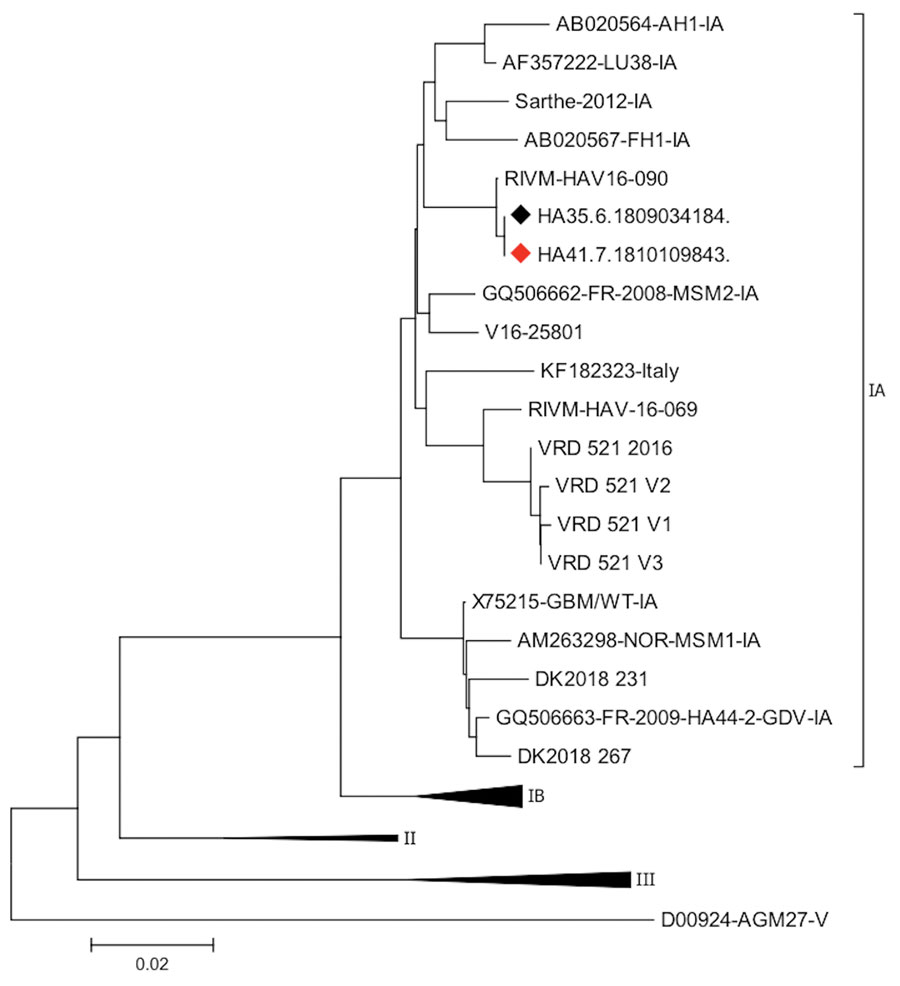Volume 28, Number 1—January 2022
Dispatch
Transfusion-Transmitted Hepatitis A Virus, France, 2018
Figure 2

Figure 2. Phylogenetic relationships of viral protein 1/2A sequences in case of transfusion-transmitted hepatitis A virus, France, 2018. Black diamond indicates the sequence from the blood donor; red diamond indicates sequence from the blood recipient. Scale bar indicates nucleotide variation.
Page created: November 30, 2021
Page updated: December 20, 2021
Page reviewed: December 20, 2021
The conclusions, findings, and opinions expressed by authors contributing to this journal do not necessarily reflect the official position of the U.S. Department of Health and Human Services, the Public Health Service, the Centers for Disease Control and Prevention, or the authors' affiliated institutions. Use of trade names is for identification only and does not imply endorsement by any of the groups named above.